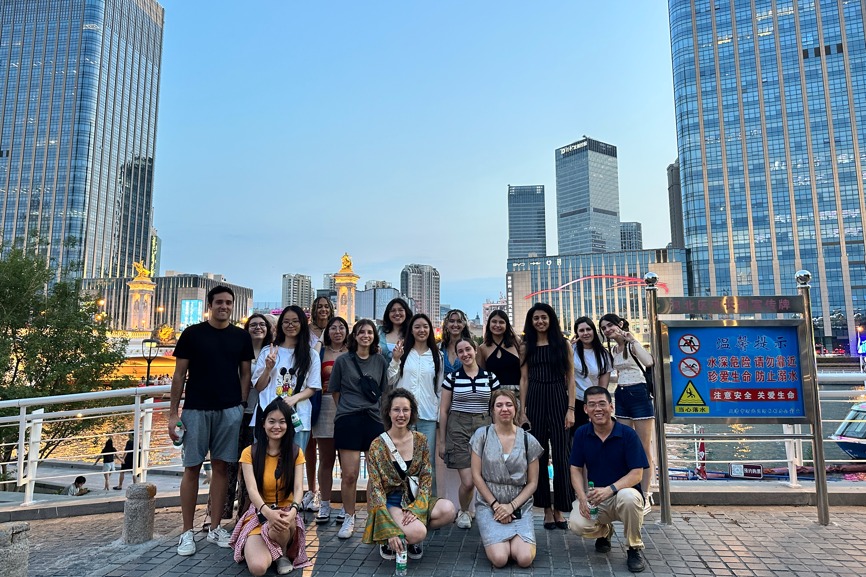AI assists, but teachers remain irreplaceable

Educators around the world are actively integrating artificial intelligence into English language classrooms to significantly enhance cross-cultural communication, the group said during a gathering for global English educators held in Beijing.
Teachers from Kazakhstan, Vietnam and China said they have used AI tools to simulate authentic conversations with diverse cultural perspectives, provide instant access to information about global customs and traditions, and create immersive scenarios such as role-playing in virtual settings.
Kazakh English teacher Assira Sadykova from IT School-Lyceum No 50 said that AI can help students explore and practice cultural diversity in English lessons, simulating real conversations with people from different cultural backgrounds.
"This helps learners build empathy and tolerance," she said, emphasizing that understanding cultural diversity is necessary for successful communication. She noted that teenagers and young students are active users in the digital space, so schools should help them become respectful global citizens who appreciate cultural differences.
Vietnamese English educator Vu Thi Minh Trang, from Archimedes Academy Primary School in Hanoi, explained how AI contributes to cultural learning by exposing students to diverse cultures worldwide. "By suggesting videos, stories and images depicting life in English-speaking countries, AI helps students grasp the practical use of language in real-life scenarios," Trang said.
Ge Bingfang, an ELT supervisor from Zhejiang Provincial Department of Education, highlighted the immersive aspect, stating that AI offers immersive, real-time cross-cultural experiences, enabling scaffolded cultural immersion.
Meanwhile, Xiao Tingting, an English teacher at Beijing No 161 High School, pointed out AI's role as an information resource. She said AI can offer real time answers to questions about different countries' culture, covering history, customs or cuisine. Thus, it acts as a knowledgeable teaching assistant.
Xiao uses AI tools for practice and speaking exercises. AI assists in test systems, lesson prep, quizzes, and multimedia creation.
While AI is constantly involved in daily teaching, the teachers are confident that they won't be replaced by AI even with its rapid advancement. Sadykova said AI offers quick information but can't help build soft skills or create a supportive environment. "Teachers guide, inspire and respond to individual needs — something that AI, at least for the moment, can't do," she said.
Ge said teachers make meaning in communication. AI can't read cultural discomfort or spark 'aha!' moments. "Education hinges on human connection — inspiring students and adapting to teachable moments," he said.
Xiao said English courses nurture moral and intellectual growth via human interaction. "Teachers must be role models in learning and life values — AI cannot replace this," she said.
zoushuo@chinadaily.com.cn
- AI assists, but teachers remain irreplaceable
- Gen Z unpacks meaning of success
- State Grid's recycling centers forge sustainable path
- New rail-sea route gets Sichuan specialty foods to Africa fresher and faster
- Chinese tradition helps student carve out future
- Framework a blueprint for BRI English education





































